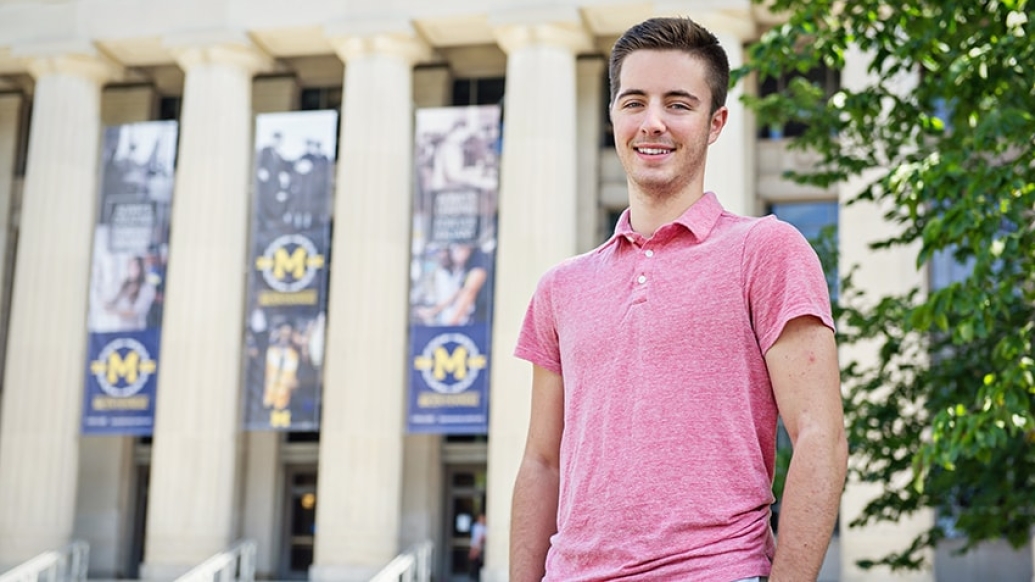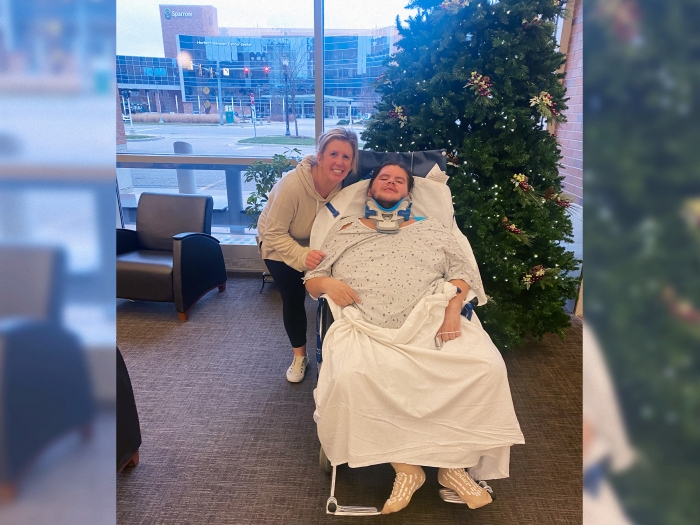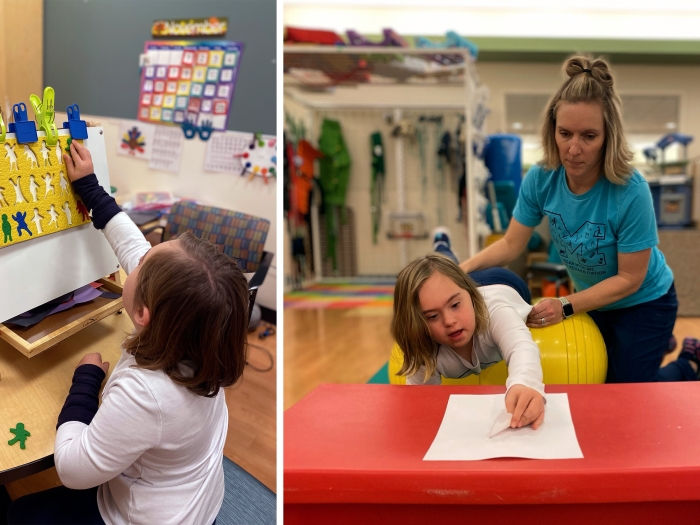A fall from a second-story, off-campus roof could have been fatal for a college sophomore. Thanks to a specialized intensive care unit at Michigan Medicine, the student is back at class.
7:00 AM
Author |

Last November, University of Michigan sophomore Jonathon "John" Beckman fell more than 12 feet from the roof of an off-campus building and landed headfirst on the sidewalk.
MORE FROM MICHIGAN: Sign up for our weekly newsletter
First responders quickly transported him to the Massey Emergency Critical Care Center at Michigan Medicine.
More than seven hours away in Michigan's Upper Peninsula, Beckman's parents received word of their son's accident.
"Even before we knew the details of his condition, we just started to drive," his mother, Liz, recalls. "Cell service in the U.P. is spotty, but miraculously his neurosurgeon called us just as we reached the first rest stop with good reception, and we discussed the plan."
As the Beckmans made their way to Ann Arbor, a neurosurgeon performed a decompressive craniectomy — surgery that involved removing a large part of John's skull to try to relieve the pressure building up within his brain.
"The whole way there, I kept thinking that getting news that your loved one has been in a serious accident and not being able to be there immediately must be what military families go through," Liz recalls.
By the time she and husband Mark arrived, along with their daughter, their son was out of surgery and had been transferred to the neurointensive care unit (NICU).
Highly specialized care
For patients like John who suffer life-threatening neurological events, neuro-critical care offers the best hope for recovery.
Michigan Medicine's 15-bed NICU is staffed by experts who include board-certified neurointensivists, doctors trained to care for the most fragile neurological patients, as well as specialized nurses trained to care for critically ill and neurologically impaired patients.
SEE ALSO: What Happens When You Get a Concussion — and What Happens Next
"John was extremely ill when he arrived on the unit," says Venkatakrishna Rajajee, MBBS, medical director of Michigan Medicine's NICU and the neurointensivist who cared for John. "He had multiple brain bleeds, severe brain swelling, contusions in the lungs and a burst fracture in his thoracic spine. He was not expected to survive without life support."
As is the case with many neuro-critical care patients, the biggest threat to John's survival and recovery was a dangerous elevation in the pressure within the brain (also known as intracranial pressure, or ICP).
Although the craniectomy brought down John's ICP, it soon rose again to a critical level.
A number of advanced treatments were used to ease the pressure within John's brain. A highly concentrated salt solution was infused into his veins to control brain swelling. And a device known as the Arctic Sun, which uses adhesive pads filled with circulating ice-cold saline, lowered his body temperature, thus reducing his critically injured brain's need for oxygen.
Eventually, John was placed in an induced coma using the drug pentobarbital. His ICP level finally stabilized. The patient's doctors and nurses worked closely with the parents and continuously monitored his progress.
"I became obsessed with watching that ICP monitor," Liz recalls.
Reversal and recovery
After nearly two weeks, the care team began gradually bringing John out of the coma.
Regular checks of his neurological activity were eventually rewarded with a thumbs-up from the patient, who later showed signs of improvement by sticking out his tongue, then movement on his right side. Eventually, movement returned on his left side.
A follow-up surgery soon afterward implanted two titanium rods in his spine to secure the burst vertebra.
John was released Dec. 6, one month to the day after his accident. In January, the defect in his skull was closed with a procedure known as a cranioplasty.
Not surprisingly, he remembers nothing about his time in the NICU: "The first thing I remember was feeling like I wanted to get back to school as soon as possible."
John returned to campus for the spring term, resuming his biochemistry studies. He hopes to attend dental school one day.
"I guess there's no better word than grateful to describe how I feel about the doctors and nurses," he says. "The same goes for my family and friends. Their emotional and spiritual support made a huge difference in my recovery."
Photo by Leisa Thompson

Explore a variety of healthcare news & stories by visiting the Health Lab home page for more articles.

Department of Communication at Michigan Medicine
Want top health & research news weekly? Sign up for Health Lab’s newsletters today!





